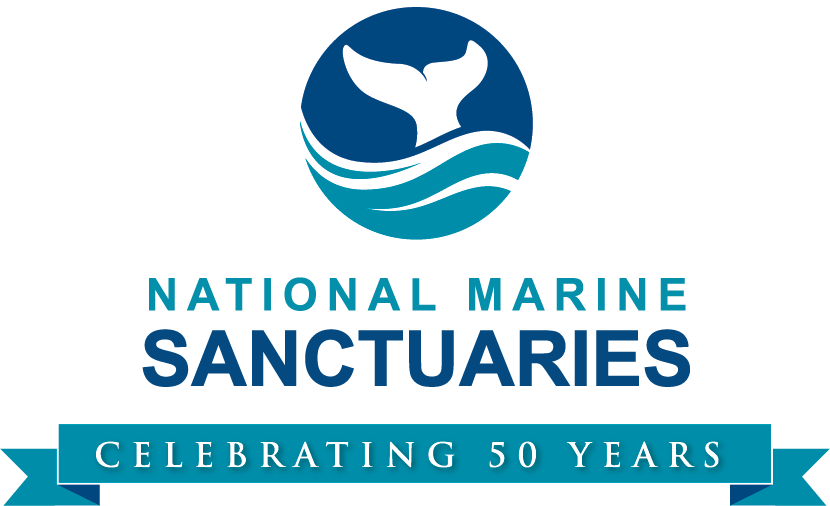
Save Spectacular
The Next 50 Years of Ocean Conservation
By Rachel Plunkett
October 2022
Here we are, at a milestone marking 50 years of protecting special ocean and Great Lakes places in the United States. We are thrilled to say that the National Marine Sanctuary System has come a long way, and today we are recognized as a conservation leader abroad and at home.
Looking back to where we began 50 years ago, there were few ocean protections and marine conservation laws in place, only a handful of scattered and isolated marine protected areas, and environmental disasters such as oil spills were far too commonplace. Today, we oversee a system of underwater parks that encompasses more than 620,000 square miles of special ocean and Great Lakes waters, with a community-centered nomination process, continuous research and monitoring programs, and strategies for managing these places that allow us to listen to public input and adapt to changes over time. While we prepare to tackle the enormous task that lies ahead, as our planet is challenged by several new and evolving threats, we believe that with the groundwork that’s been laid here in the United States, the legacy we will leave a half century from now will be a thriving and resilient ocean for all the generations to come.
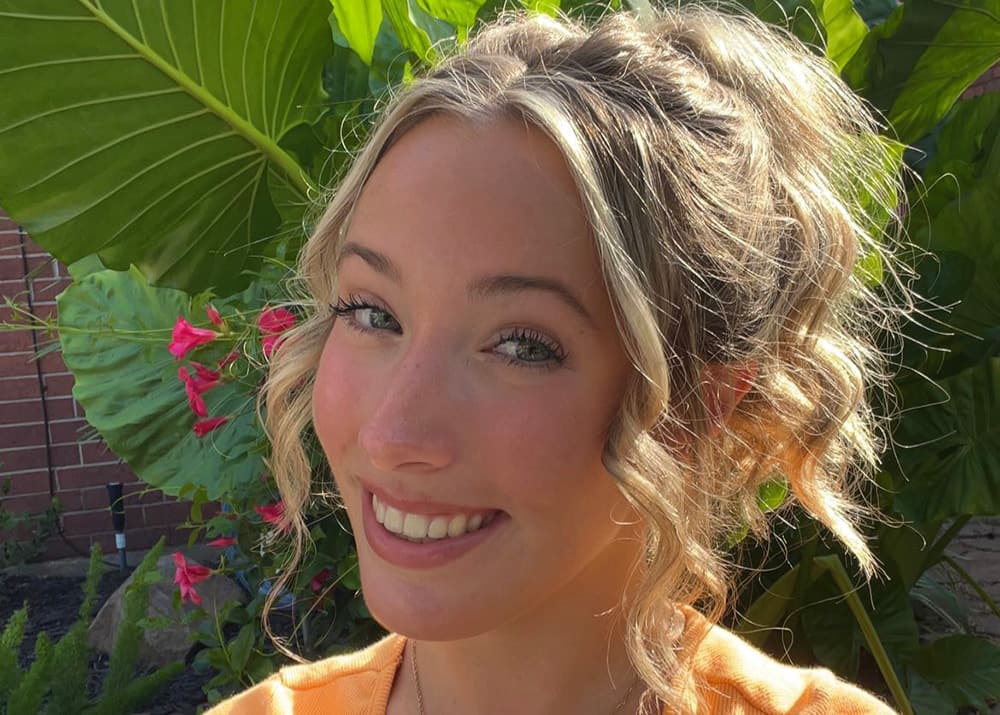
Avery Minasi
17 Years Old
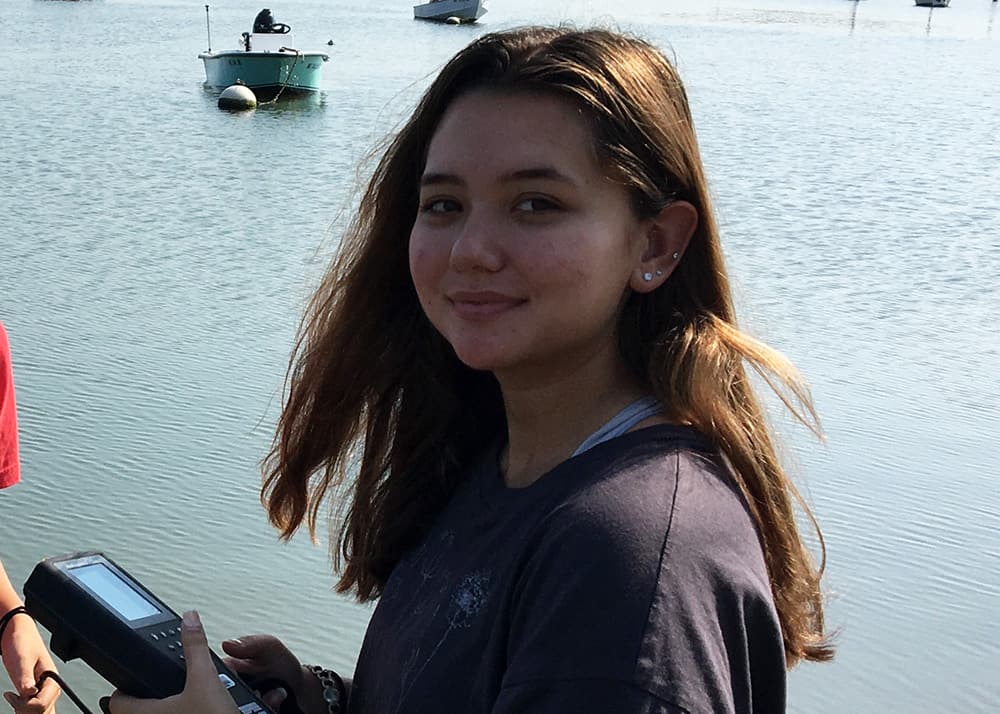
Bridgit DeGroat
17 Years Old
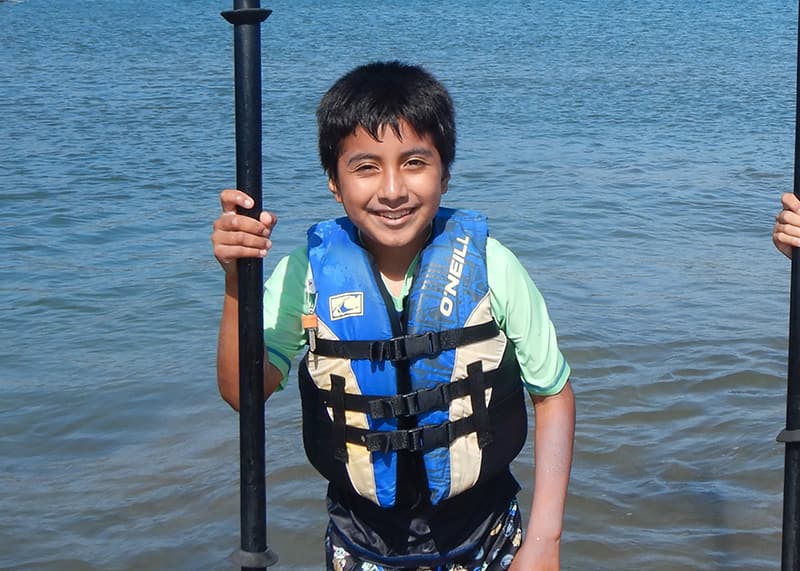
Iker Issac Fuentes Huerta
10 Years Old
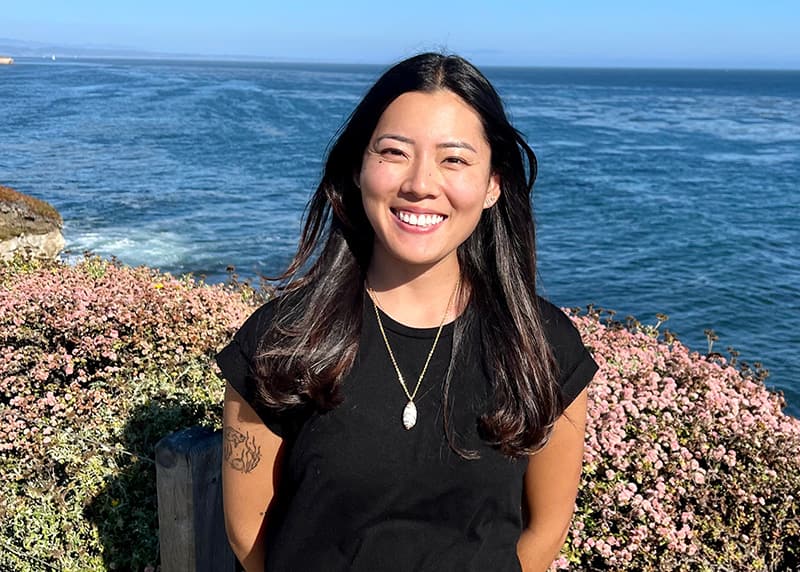
Jessica Choi
24 Years Old
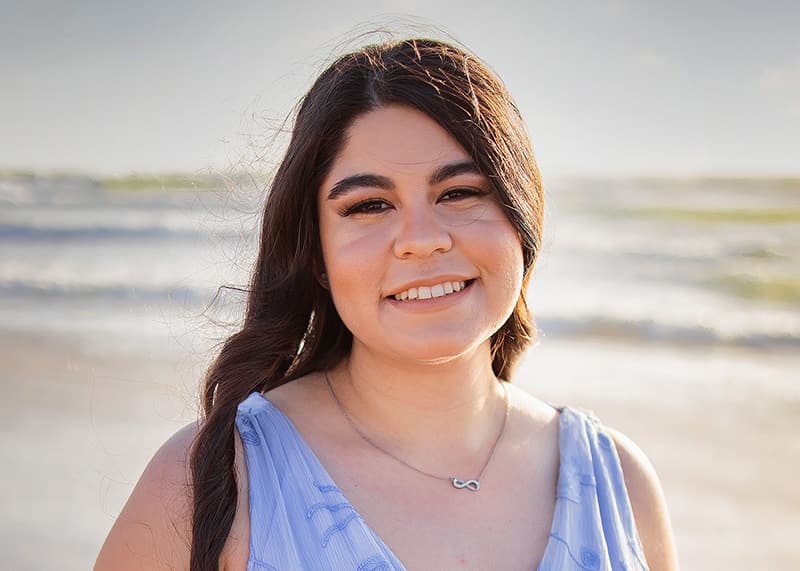
Jezella Peraza
23 Years Old
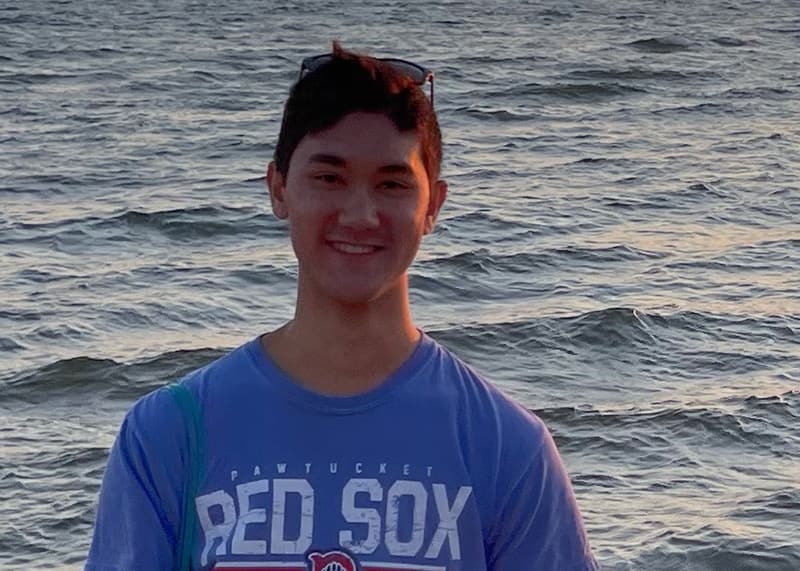
Justin Packs
21 Years Old
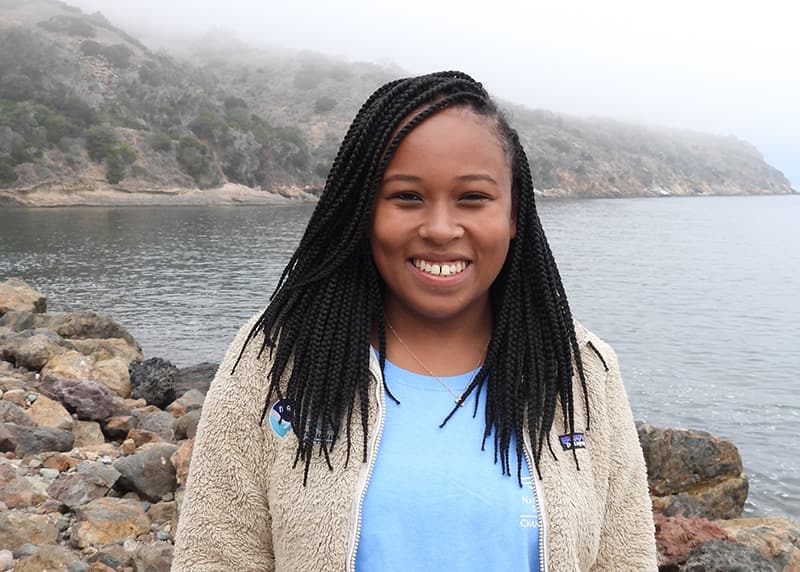
Keiko Wilkins
26 Years Old
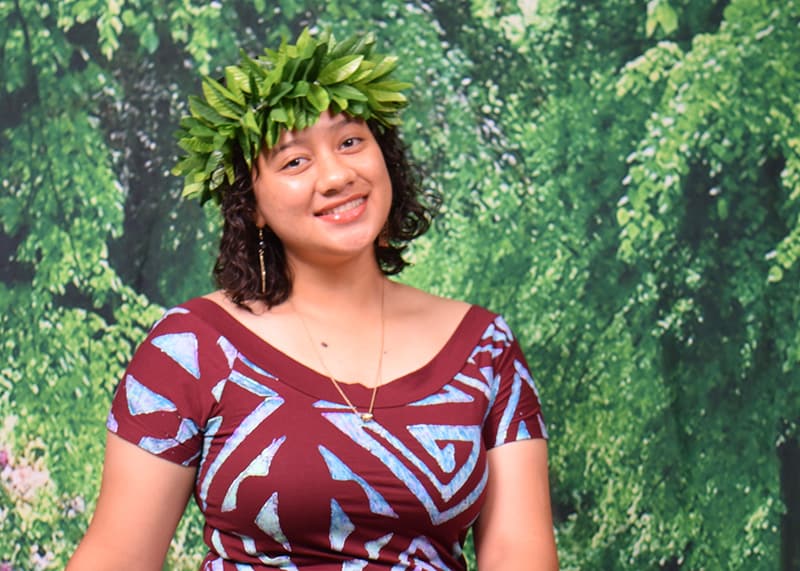
Liualevaiosina Chloe-Marie Leiato
18 Years Old
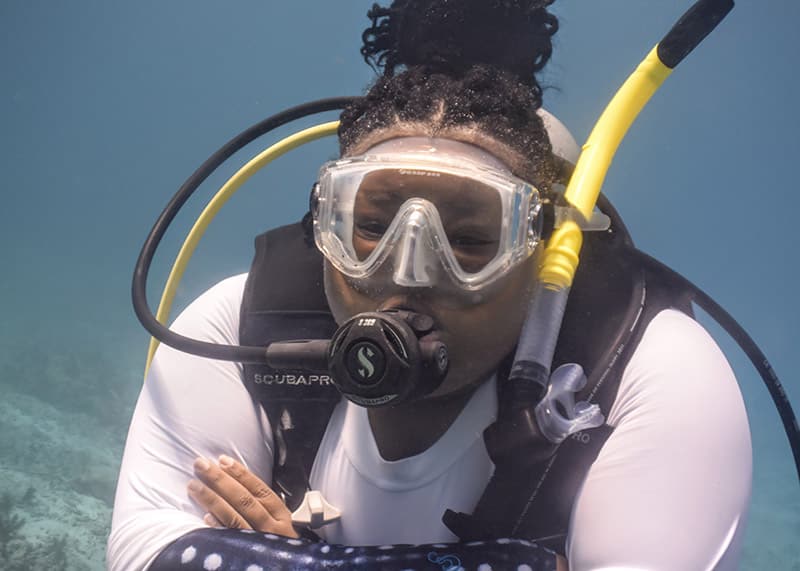
Michaela Strong
22 Years Old
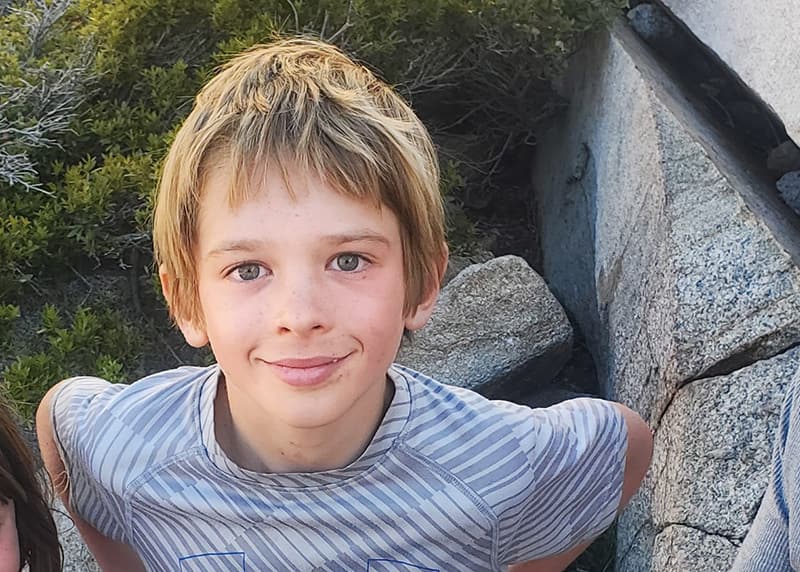
Wilder Hutto
7 Years Old
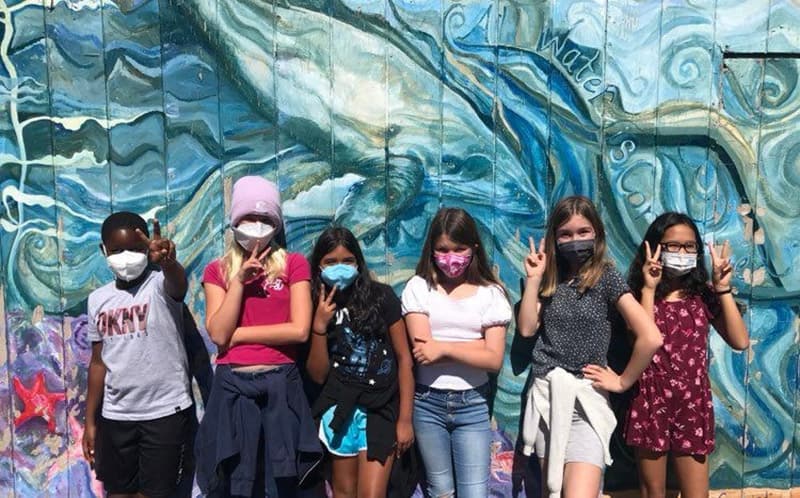
Joaquin Miller Green Team
10-11 Years Old
Avery Minasi
17 Years Old
Dickinson, Texas
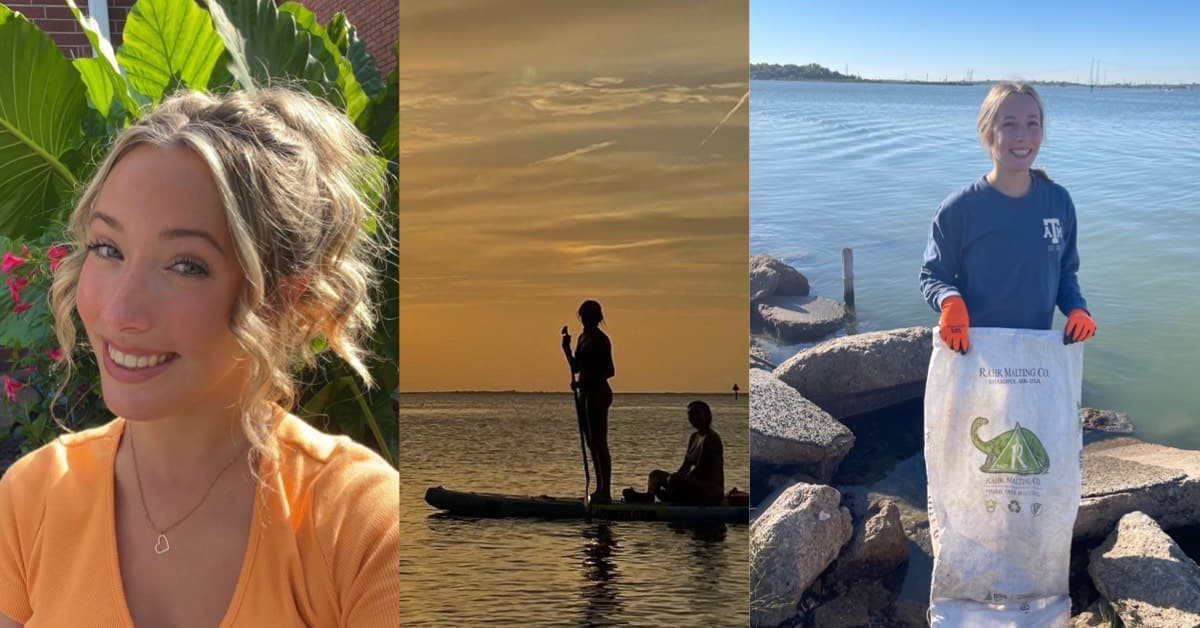
How did you get interested or involved in ocean conservation or marine science?
I became interested in ocean conservation and marine science when I was researching biology degrees in preparation for college. I chose to take aquatics this school year hoping I would learn more about it and I knew it was something I was passionate about. Ocean conservation has always been something I’ve been interested in, especially living so close to the coast and frequenting the beach growing up.
Why do you care about the ocean and how does the ocean and/or Great Lakes benefit you?
I care about the ocean because it is my favorite place on Earth, it eases my mind and humbles me with its vastness. I love paddleboarding, swimming, fishing, and hope to learn how to surf one day. When people ask me where I plan on moving in the future, I tell them, “As long as I’m close to the water, it doesn’t matter to me.”
Why is it important to you that special places like national marine sanctuaries be conserved for future generations?
Conserving the ocean for future generations is important to me because its beauty is like nothing else on this planet, and it’s something everyone deserves to experience in their lifetime. Neglecting and polluting our ocean is detrimental to the quality and biodiversity of it, which gives less for future generations to discover and explore. The ocean also has an essential role in our world’s climate and atmosphere, and it’s only fair to leave them a healthy planet to live in.
What would you like to see happen over the next 50 years to make the National Marine Sanctuary System even better?
Over the next 50 years, I would love to see the National Marine Sanctuary System and NOAA increase their worldwide reach. I had never heard of this organization until my aquatics class, but with expanding education on this and reaching out to more of the population through the media it could have a lot more impact. NOAA should be a household organization, and the more people made aware of the cause, the more actions that can be taken and donations made. I think it would also be beneficial if NOAA helped publicly promote laws being enacted on environmental issues such as phasing out single-use plastics.
Bridgit DeGroat
17 Years Old
Cohasset, Massachusetts

How did you get interested or involved in ocean conservation or marine science?
My interest in marine science and conservation started out several years ago as a way to get closer to my sisters who were going to be heading out to college and were members of the Cohasset Center for Student Coastal Research (CSCR). Cohasset is a coastal community, and I had always liked going to the beach with my friends, although we hated it when the town closed the beaches. I found that I really got interested in looking at water quality issues from the other side—and some of our testing led to those health closures. It’s amazing that small pollution inputs can have large impacts with consequences for the community and the ecosystem.
Why do you care about the ocean and how does the ocean and/or Great Lakes benefit you?
My work at CSCR showed me how important the ocean is to Cohasset and other coastal communities that rely on tourism and the beaches for their economy. The ocean is used for travel, food, entertainment, and is home to amazing animals, some of them endangered. We’re hoping to go out on a whale watch with our research group to see some of the whales in the sanctuary. Caring about the ocean is helping me shape my career path—we need more businesses that care about protecting the environment.
Why is it important to you that special places like national marine sanctuaries be conserved for future generations?
Our Stream to Sanctuary program has us consider how the outcomes of inland actions can eventually influence the sanctuary and open ocean. I think of the butterfly effect and how some changes in one location can have big impacts elsewhere. If we can have a lot of small projects in communities like Cohasset (and CSCR) all along the coast, collectively, we may make important steps to protect the environment. It’s the same with national marine sanctuaries and other special places—if we protect them, the effects may be felt in other nearby waters. By conserving these diverse ecosystems, we can help economies in many areas.
What would you like to see happen over the next 50 years to make the National Marine Sanctuary System even better?
Protecting more of the ocean would help us continue to have diverse ecosystems and build back areas that have been harmed in the past. There should be more funding to create more national marine sanctuaries and to support ocean research and exploration, since we really know very little about this part of our planet. Schools should do a lot more to educate students about the importance of the ocean to their lives, no matter where they live.
Iker Issac Fuentes Huerta
10 Years Old
Santa Barbara, California
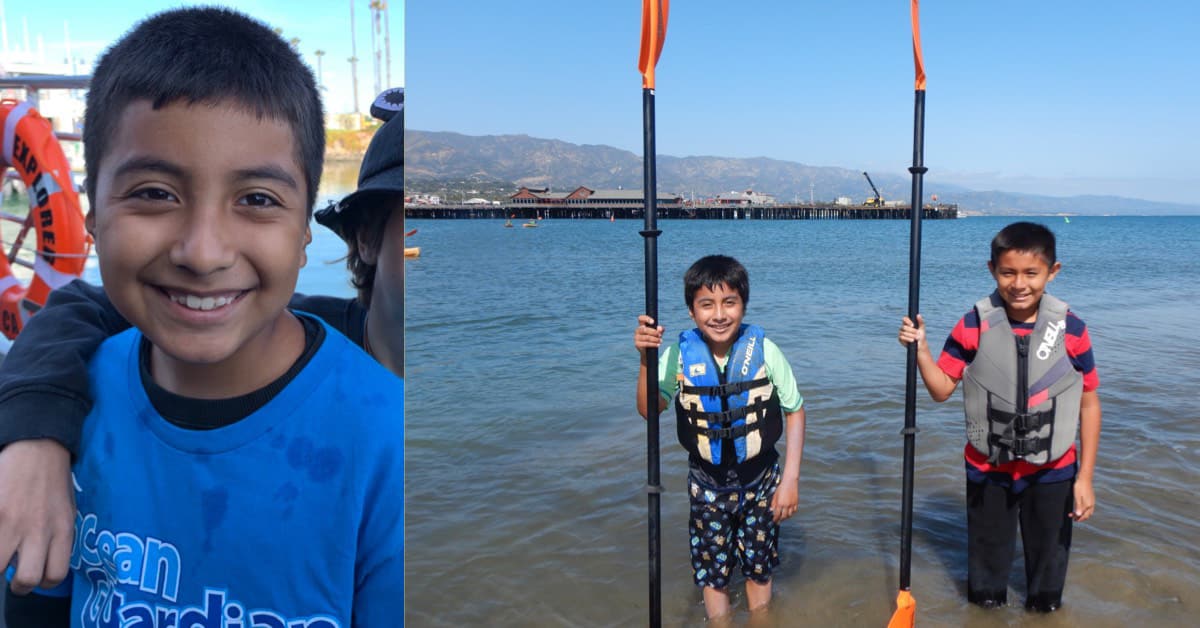
How did you get interested or involved in ocean conservation or marine science?
I got involved in the Adams Elementary Ocean Guardian Ambassadors Program because I heard one of my friends saying that it is interesting and also an amazing experience, where you can learn a lot about different animals and their habitat, and different types of species.
Why do you care about the ocean and how does the ocean and/or Great Lakes benefit you?
I care about the ocean, because there are tons of different kinds of sea animals that die because they eat trash that humans throw in the ocean. My favorite activity was when we went kayaking. I was scared but I ended up really enjoying it. That was one of the best experiences I ever had.
Why is it important to you that special places like national marine sanctuaries be conserved for future generations?
I think that it is very important that more kids like me have the same opportunity to enjoy all the beautiful things in nature that we have. It will be very nice if we work together to keep our ocean clean. We should work together to keep our sea animals, and all the animals, safe in their own habitat.
What would you like to see happen over the next 50 years to make the National Marine Sanctuary System even better?
I would like to see more people helping in national marine sanctuaries. Keep the ocean healthy and the animals in their habitat, and also allow people to enjoy them. I also would like to see more marine protected areas all over the world so that more places are protected and more people get to know everything about the ocean and the animals that live there. And that way we can help to keep them around for many more years.
Jessica Choi
24 Years Old
San Francisco, California
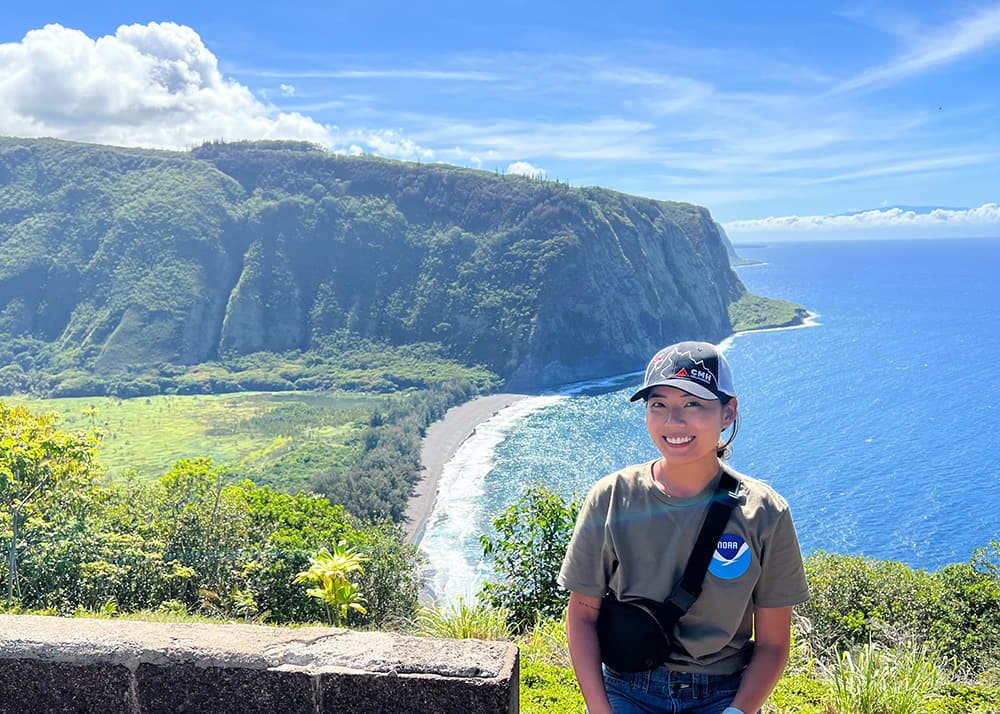
How did you get interested or involved in ocean conservation or marine science?
I grew up tidepooling in Half Moon Bay almost every weekend. I loved tagging along on my dad's annual abalone diving camping trips in Mendocino in Northern California. In high school, over my freshman year summer, I joined the WAVES (Watershed Advocacy Via Educational Stewardship) program in San Francisco through the Seven Tepees Youth Program and it changed my perspective of conservation entirely! As an undergraduate student, I was a volunteer and mentor for UC Santa Cruz's Stranding Marine Mammal Network. I am currently a fisheries lab technician at NOAA's Southwest Fisheries Science Center in Santa Cruz, California studying rockfish populations/life and growth history.
Why do you care about the ocean and how does the ocean and/or Great Lakes benefit you?
I care about the ocean because so much of it is still unknown and unexplored. It has the ability to restore natural resources, and I believe it is worth researching. I enjoy fishing, kayaking, hiking, and camping along the California coastline.
Why is it important to you that special places like national marine sanctuaries be conserved for future generations?
Implementing national marine sanctuaries is a great way to ensure ongoing education and outreach about important marine habitats and resources. I also think it’s important that each national marine sanctuary has special regulations making certain harmful activities in some zones "off-limits" for generations to come. National marine sanctuaries are an amazing place to see areas of the ocean that have not been developed and overrun by human-impacts.
What would you like to see happen over the next 50 years to make the National Marine Sanctuary System even better?
Over the next 50 years, I hope more areas around the world are designated as national marine sanctuaries. Doing so will help restore declining species numbers and damaged ecosystems at a greater scale.
Jezella Peraza
23 Years Old
El Centro, California
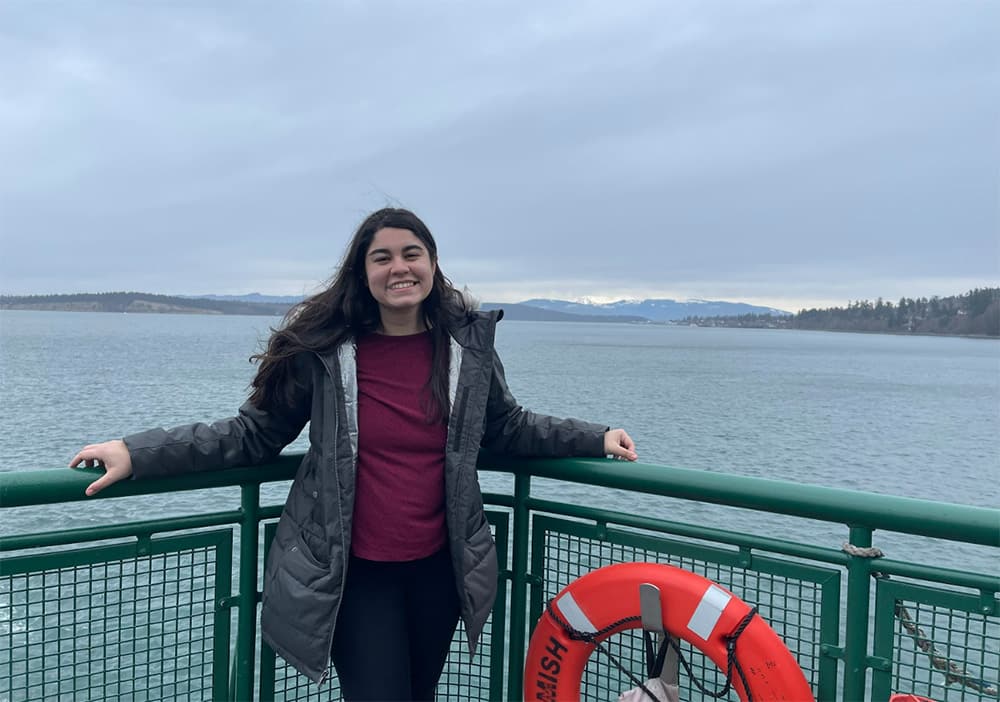
How did you get interested or involved in ocean conservation or marine science?
Growing up in a small, Hispanic community in Southern California, I had limited access to outdoor educational opportunities, especially when it came to exploring our ocean because my community is over a hundred miles away from the ocean. Fortunately, my family would dedicate time to visit beaches in Baja California, Mexico, and I truly believe that those experiences inspired me to learn more about our blue planet, which led me to study marine science at California State University, Monterey Bay. During my undergraduate career, I was involved with NOAA’s Educational Partnership Program for Minority Serving Institutions, NOAA’s Ocean Guardian School program, and the Monterey Bay Aquarium. These programs shaped my journey to seek a career that not only supports understanding our ocean but also protects it through conservation efforts.
Why do you care about the ocean and how does the ocean and/or Great Lakes benefit you?
The ocean has a special place in my heart because I have grown up knowing that the ocean is a place where I am allowed to be myself and seek opportunities, all while cherishing its natural beauty. The ocean benefits me by providing me with a sense of home and belonging, where I can think of family and friends and spark new ideas for adventure. The ocean also holds one of my favorite activities—tidepooling, and marine mammals—sea otters!
Why is it important to you that special places like national marine sanctuaries be conserved for future generations?
Conserving national marine sanctuaries is important to me because I want future generations to have access to all the same resources and recreational activities that we have now. From experience, the ocean has been one of the places that improves my emotional and physical well-being, and I would like for future generations to experience those same feelings. I also believe that conserving these national treasures will inspire the next generation of scientists in hopes that they too will continue to conserve and restore these areas.
What would you like to see happen over the next 50 years to make the National Marine Sanctuary System even better?
To make the National Marine Sanctuary System even greater than it already is, I would love to see more watershed and ocean educational opportunities expand to communities that don’t have access to the ocean, like my hometown. I believe this expansion will enlighten our youth to better appreciate what the ocean has to offer and encourage them to act and protect it. This will enable the next generation of scientists to become inspired and make a difference for our planet.
Justin Packs
21 Years Old
Kensington, Maryland
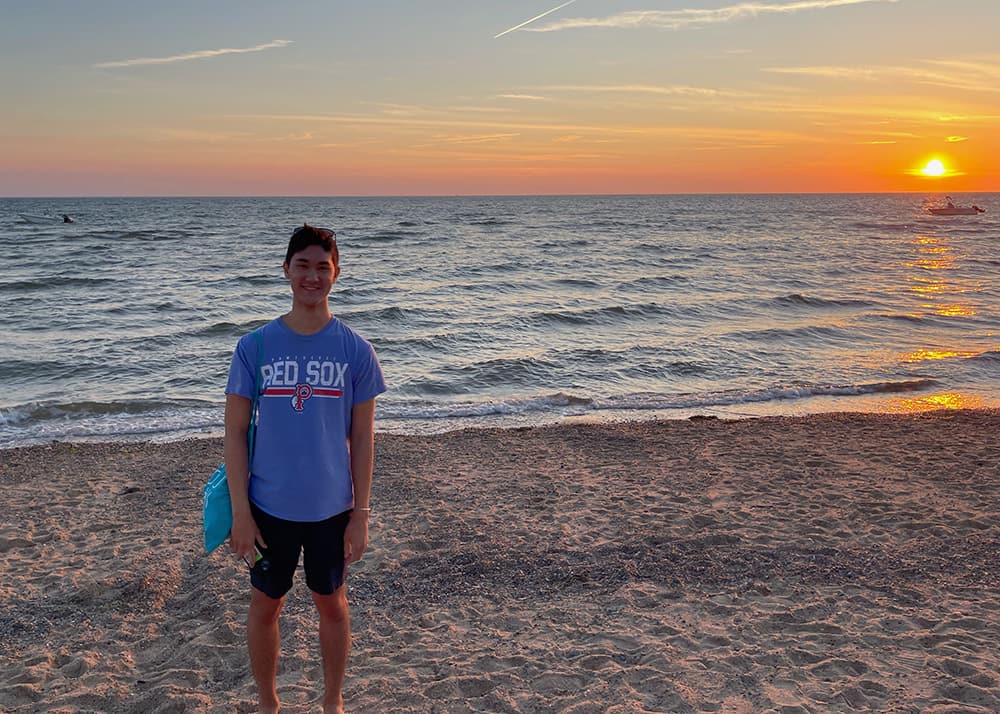
How did you get interested or involved in ocean conservation or marine science?
Knowing my love for the ocean and desire to work on environmental/sustainability issues, ocean conservation seemed like a great opportunity to work on something meaningful to me. I have been working with the Office of National Marine Sanctuaries as an education and outreach intern for a couple years and have enjoyed meeting people dedicated to ocean conservation work and learning about the many ways we can serve the ocean.
Why do you care about the ocean and how does the ocean and/or Great Lakes benefit you?
Growing up in the Maryland suburbs, I often longed to feel closer to the ocean throughout my childhood. My grandfather was born around the ocean in Oahu before moving to New York, and my mother often talked about her summers at the beach. After family summer holidays to the Jersey shore, Cape Cod, California, and Hawai’i my joy around the ocean only grew. From these positive experiences and memories and ones I continue to make, the ocean acts as a personal and emotional building block for who I am and serves my mental health by providing a place of calm, reflection, and perspective that is rejuvenating and uplifting.
Why is it important to you that special places like national marine sanctuaries be conserved for future generations?
It is important for future generations to have the same opportunities to witness and experience the ocean as I had, with the potential to build meaningful connections that can translate into stewardship or simply appreciation, respect, and joy. They also deserve to reap the same ecological, social, and economic benefits from the ocean that we have taken for granted. People in many areas of the world live under more precarious circumstances now, whether they struggle to support their family through the blue economy due to changing ocean conditions or rely on reefs and wetlands to prevent flooding, because of our ignorance. A dedication to protect the ocean works to maintain all these benefits for everyone.
What would you like to see happen over the next 50 years to make the National Marine Sanctuary System even better?
I would like to see the National Marine Sanctuary System expand its network of partners and continue to listen to and work with communities. Building and managing a system of sanctuaries at the national scale works better when we don’t place ourselves above local communities and implement changes upon them, but rather view them as partners in research and conservation. There are so many organizations working to protect the ocean and make it a more accessible place for everyone. Bringing even more of those groups into the national marine sanctuary network would aid management, conservation, and public enjoyment.
Keiko Wilkins
26 Years Old
Pickerington, Ohio
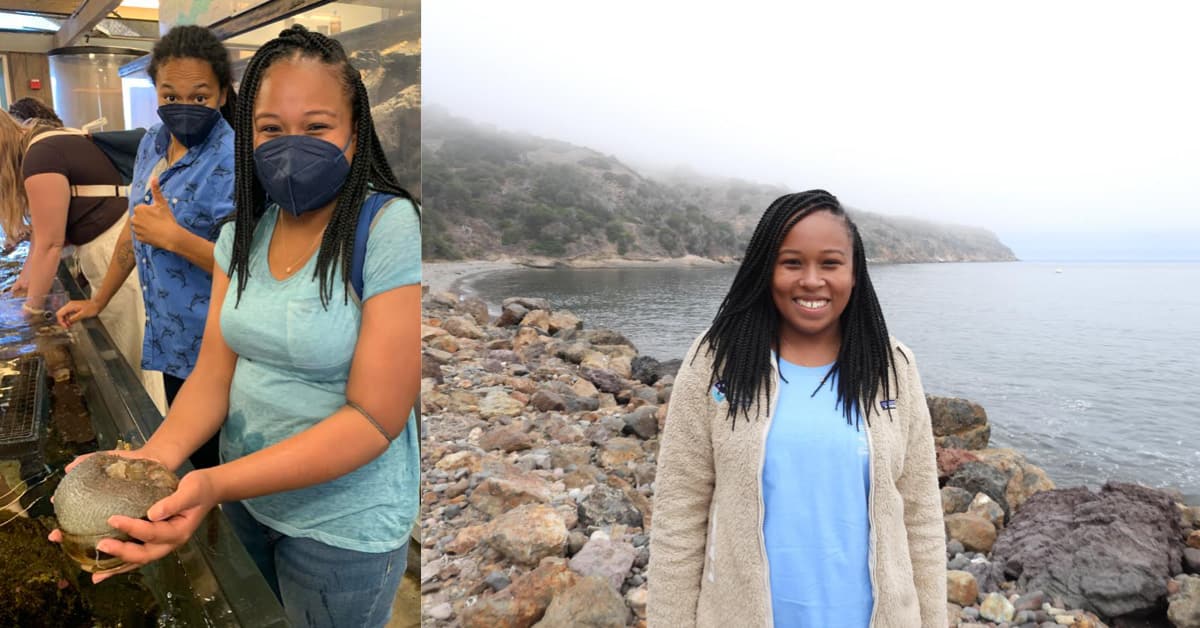
How did you get interested or involved in ocean conservation or marine science?
I was first exposed to marine science as a junior at Miami University (Oxford, OH). I was a part of a research cruise to Puerto Rico in collaboration with the Sea Education Association. I was given my first chance to see the types of things marine scientists do while also collecting plankton samples for my own project. This opportunity really opened my mind to the possibility of me being a marine scientist someday.
Why do you care about the ocean and how does the ocean and/or Great Lakes benefit you?
I care about the ocean because it brings me joy. Being around the ocean gives me a sense of calm. I love spending the day on the beach reading a book, going for a swim, snorkeling, or even just watching the sun set over the water. There is no place quite like the ocean.
Why is it important to you that special places like national marine sanctuaries be conserved for future generations?
Conserving national marine sanctuaries is important to me because I want future generations to be able to experience the ocean in the same ways that I can now. I want future generations to continue to be able to snorkel and enjoy the beautiful colors of the vast coral reefs and the animals that live upon them. National marine sanctuaries give us the opportunity to do just that.
What would you like to see happen over the next 50 years to make the National Marine Sanctuary System even better?
I would love to see other places designated as national marine sanctuaries and a greater awareness of what a national marine sanctuary is. I hope that more people will recognize the true value of these underwater treasures. Once people begin to recognize their value, they will hopefully want to protect these areas just as much as I do.
Liualevaiosina Chloe-Marie Leiato
18 Years Old
Villages of Fagaitua & Ili'ili, American Samoa
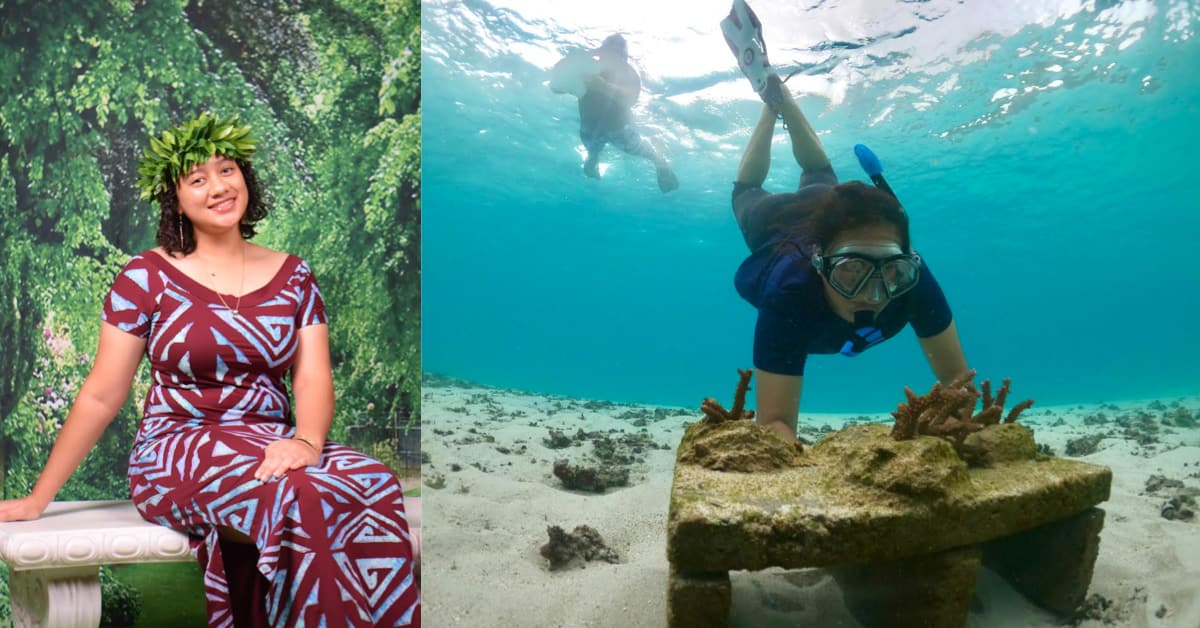
How did you get interested or involved in ocean conservation or marine science?
My initial spark for marine science began through my participation in National Marine Sanctuary of American Samoa’s summer programs over the years (Ocean Star and Sanctuary Summer Science in the Village program). Dipping my toe into the marine field, I discovered my love for our ocean and the desire to protect and preserve it and the life within.
Why do you care about the ocean and how does the ocean and/or Great Lakes benefit you?
The ocean gives life to being a proud Samoan, Pasifika woman. Our Samaon livelihood revolves around both the ocean and the greenery our island is blessed with. Without this sacred body of wealth and prosperity, we would not have thrived, let alone survived, as a people.
Why is it important to you that special places like national marine sanctuaries be conserved for future generations?
Our national marine sanctuaries house abundant and prosperous marine ecosystems that uphold biodiversity within our reefs and along our coastlines. These local treasures should be protected at all costs for the benefit of not only ourselves but generations yet to come. They too will learn and appreciate the beauty that makes our island home one of a kind.
What would you like to see happen over the next 50 years to make the National Marine Sanctuary System even better?
In 50 years, I hope that the National Marine Sanctuary System broadens and strengthens its network in local communities—most especially in its outreach and awareness efforts. Speaking from my first-hand experience, in American Samoa a good chunk of our people are either unaware or disinterested in the wellness of our local sanctuaries. Finding more engaging activities which seek to run year round will peak both community awareness and interest.
Michaela Strong
22 Years Old
Elkridge, Maryland
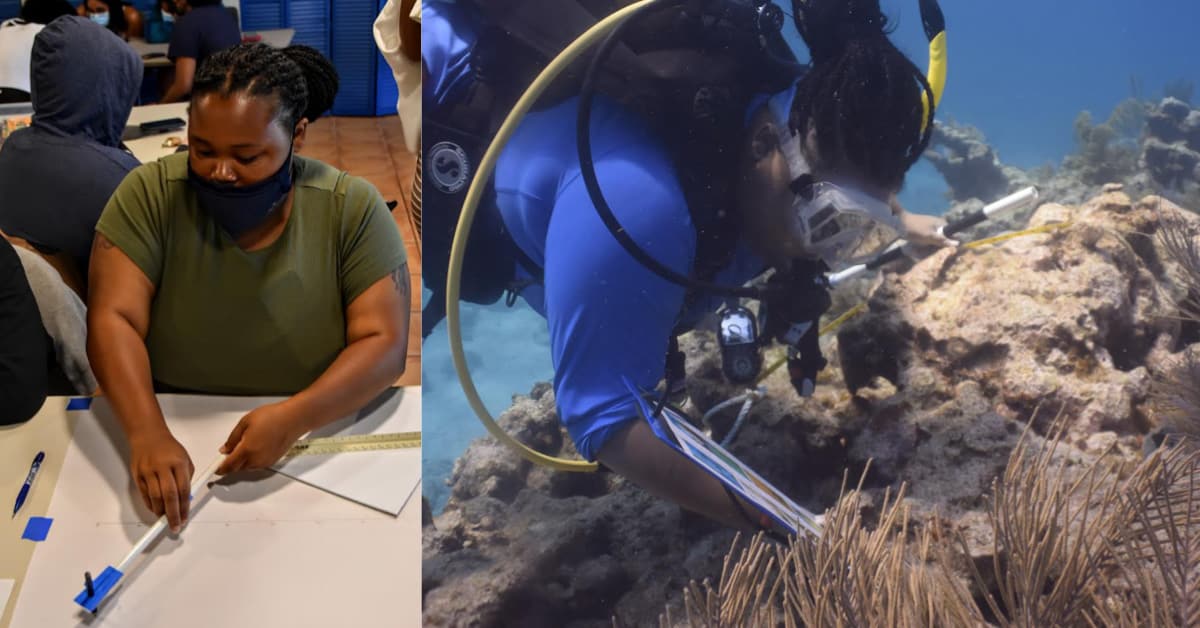
How did you get interested or involved in ocean conservation or marine science?
At the beginning I got certified to scuba dive because of my dad and I’ve always loved the ocean. Once I was certified, it solidified what I really wanted to do. I decided then that I wanted to go into ocean conservation, and I joined Youth Diving With a Purpose (YDWP) to participate in the C.A.R.E.S program (Collective Approach to Restoring our EcoSystems). This became my main interest for a career.
Why do you care about the ocean and how does the ocean and/or Great Lakes benefit you?
I care for the ocean—it’s what protects us from the dangers of weather and food shortages, and has an economic value that benefits everyone. Without the ocean and its many gifts to offer many science experiments, medicines, and other values would be lost. For example, coral are not plants but animals that can be used in research for potential cancer medicines. Not only that, but coral reefs create wave break barriers offshore, slowing the speed of waves that roll in from storms or windy days. The rich biodiversity in the ocean, such as on coral reefs, attracts tourists to come to see the wonderful colors and different varieties of species that live in different parts of the world.
Why is it important to you that special places like national marine sanctuaries be conserved for future generations?
I think it’s important to keep national marine sanctuaries safe because many of them house endangered animals and provide important feeding grounds for wildlife. Several national marine sanctuaries also protect the history of past ancestors, like slave shipwrecks, such as Guerrero. I also think it’s important that everyone learn about their history in order to improve themselves. Keeping the history of our ancestors alive helps us learn about past mistakes in order to make better choices in the future.
What would you like to see happen over the next 50 years to make the National Marine Sanctuary System even better?
I would like to see the National Marine Sanctuary System get support to continue to protect its existing waters—the biodiversity, corals, endangered animals, ect. I want to see the critically endangered animals that rely on these places finally come off the Endangered Species List and prosper for other generations after me to enjoy. My path for the future is to work with NOAA’s Office of National Marine Sanctuaries by studying corals and bringing awareness to others in my community.
Wilder Hutto
7 Years Old
Santa Cruz, California
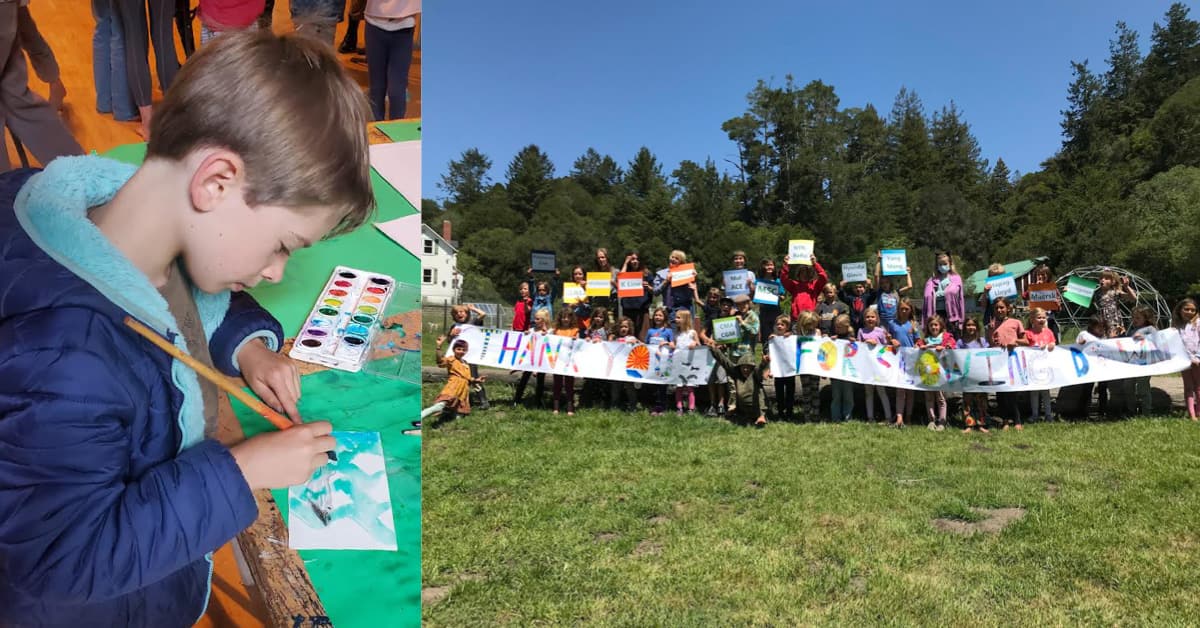
How did you get interested or involved in ocean conservation or marine science?
I first learned about the ocean from my mom, who works for a national marine sanctuary. I was also inspired by my teacher at Orchard School, who taught us a lot about whales. We learned about different kinds of whales, where they live and how they live. And then my mom came to my school to talk about how sometimes those big ships that carry stuff can sometimes hit and kill whales, but when they slow down the whales can get out of the way. So, our class made these postcards to say thank you to the ships that have been slowing down, and the ship people got the cards and agreed to keep slowing down.
Why do you care about the ocean and how does the ocean and/or Great Lakes benefit you?
I care about the ocean because it is so cool. I like the whales, and I like to play in the ocean and explore. I also care about the ocean because it soaks up a lot of carbon, and it helps us by cooling our atmosphere and we should help it by not driving so much.
Why is it important to you that special places like national marine sanctuaries be conserved for future generations?
It is important to me because national marine sanctuaries protect special parts of the ocean, which means the ecosystems can be healthier. Sanctuaries are also important so the ocean doesn’t get polluted. I want the ocean to be healthy even when I am an old man.
What would you like to see happen over the next 50 years to make the National Marine Sanctuary System even better?
I think we should drive cars less so that the ocean can be healthy. We could also stop fishing so much, and leave more fish for the sharks and birds to eat. I also think national marine sanctuaries should protect more ocean places and more ocean animals.
Joaquin Miller Green Team
10-11 Years Old
Oakland, California

How did you get interested or involved in ocean conservation or marine science?
Most of us joined the green team at Joaquin Miller Elementary School when we were in second grade and being on the green team taught us how important our ocean is. A few years ago we also studied marine life and animals. An organization called STOPWASTE came to our school and taught students about proper recycling, the problem with contamination, and how most trash ends up in the ocean
Why do you care about the ocean and how does the ocean and/or Great Lakes benefit you?
We want to keep our ocean clean for animals and sea life. We all love going on trips to the beach. It is a place where we can forget about worries, have fun and relax. It's a place you think of when you meditate. It's a serene, calm, peaceful, fun place. Don't you think of it as nature's playground? A lot of people do.
Why is it important to you that special places like national marine sanctuaries be conserved for future generations?
Future generations should be able to experience beaches and the ocean like we get to. They should see animals in a natural healthy state of beauty and make sure it's free of plastic.
What would you like to see change in how we take care of the ocean?
Our Generation Alpha needs to come up with solutions to prevent having to clean up the ocean in the future. Here are some strategies: 1) Education to make people aware of problems; 2) More people using solar energy; and 3) Making sure everyone is working together to keep our beaches clean and healthy. Our ideal vision of the future is clean fun beaches that every living being can enjoy!

